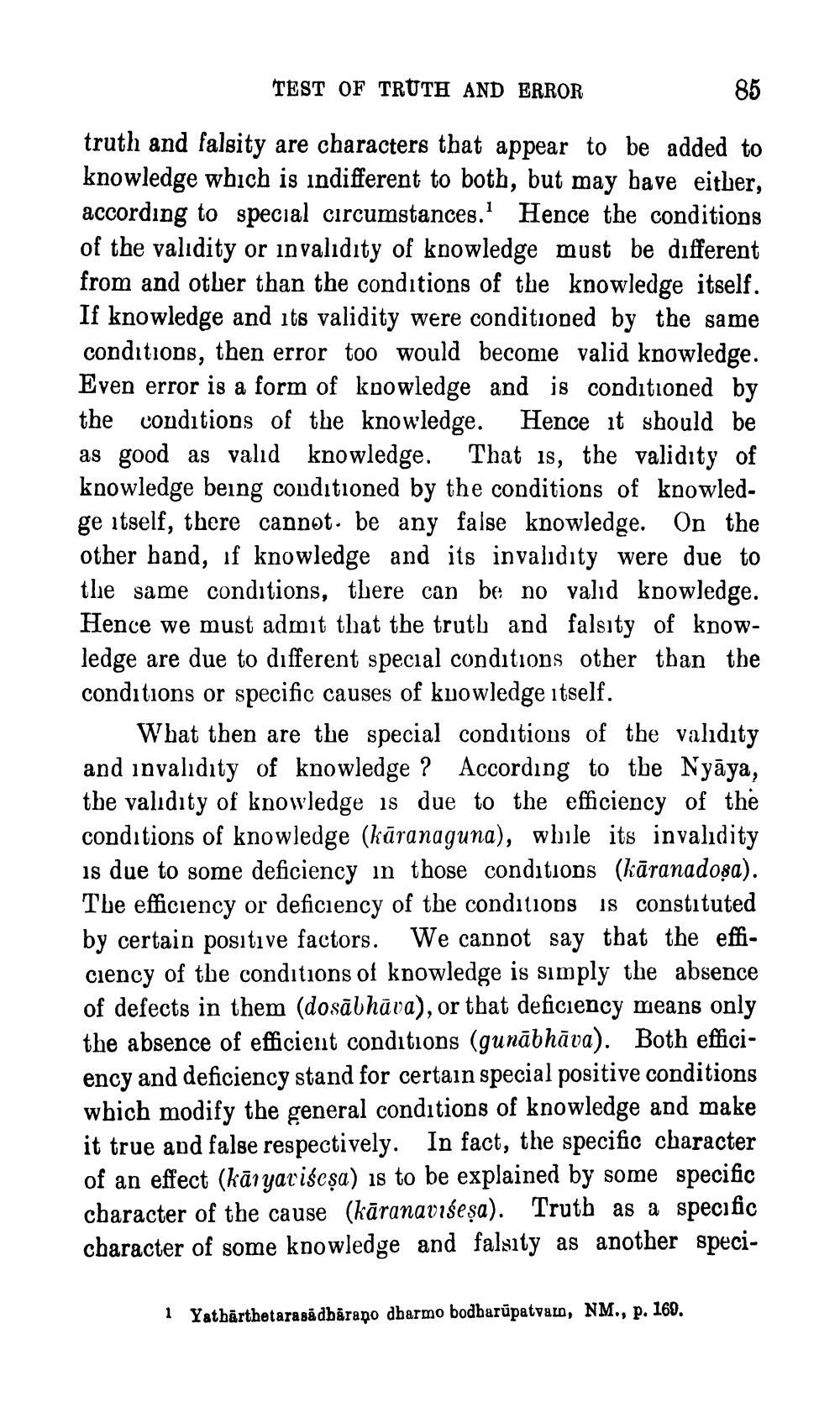________________
TEST OF TRUTH AND ERROR
truth and falsity are characters that appear to be added to knowledge which is indifferent to both, but may bave either, according to special circumstances. Hence the conditions of the valıdity or invalidity of knowledge must be different from and other than the conditions of the knowledge itself. If knowledge and its validity were conditioned by the same conditions, then error too would become valid knowledge. Even error is a form of knowledge and is conditioned by the conditions of the knowledge. Hence it should be as good as valıd knowledge. That is, the validity of knowledge being conditioned by the conditions of knowledge itself, there cannot be any false knowledge. On the other hand, if knowledge and its invalidity were due to the same conditions, there can be no valid knowledge. Hence we must admit that the truth and falsity of knowledge are due to different special conditions other than the conditions or specific causes of kuowledge itself.
What then are the special conditions of the validity and invalidity of knowledge ? According to the Nyāya, the validity of knowledge is due to the efficiency of the conditions of knowledge (kūranaguna), while its invalidity is due to some deficiency in those conditions (kāranadosa). The efficiency or deficiency of the conditions is constituted by certain positive factors. We cannot say that the efficiency of the conditions of knowledge is simply the absence of defects in them (dosābhāva), or that deficiency means only the absence of efficient conditions (gunābhāva). Both efficiency and deficiency stand for certain special positive conditions which modify the general conditions of knowledge and make it true and false respectively. In fact, the specific character of an effect (kāryaviścșa) is to be explained by some specific character of the cause (kāranaviseșa). Truth as a specific character of some knowledge and falsity as another speci
1 Yatbärthetarasă dbärano dbarmo bodbarūpatvarn, NM., p. 160.




